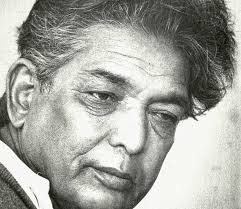Motilal was Born in Shimla on 4 December 1910. He is credited with being among Hindi cinema’s first natural actors.He came from a distinguished family from Delhi.He came to Bombay to join the Navy, but he fell ill and could not appear for the test. Fate had other choices charted out for him. One day, he went to see a film shoot at Sagar Studios, where director K. P. Ghosh was shooting. Motilal, even then, was quite the man about the town and he caught Ghosh’s eye. In 1934 (aged 24), he was offered the hero's role in Shaher Ka Jadoo (1934) by the Sagar Film Company.
By early 1940s, though, Motilal was opting for bolder plots too. He played the untouchable in Achhut (1940), a progressive film that also won praise from Mahatma Gandhi and Vallabhbhai Patel.In Aage Kadam (1943), directed by N R Acharya, he returned to comedy. Forever experimenting, he then played a serious man in Dost (1944) and Gajre (1948). His portrayal of pathos brought tears to the eyes of audiences in cinema halls all over India. He was equally at home in Mehboob’s Taqdeer (1943) and Mazhar Khan’s Paheli Nazar (1945). Hamari Beti (1950), produced and directed by Shobhana Samarth, revealed his mastery over various branches of film-production. Besides a scintillating performance, he wrote the scenario as well, and the pointed dialogues had the stamp of a seasoned writer. He took the filmworld by storm once again with his comic role in Roop K Shorey’s Ek Thi Ladki (1949) with Meena Shorey, the larralappa girl of Indian screen. The Moti-Meena pair provided more laughs in Ek Do Teen (1953), another Shorey comedy.
He starred in over 60 films, with at least 30 in the lead. But his smaller parts prompt maximum recall. In the hands of a lesser actor, the glib Chuni babu, who leads Devdas to alcohol, dancing girl and doom, could have easily become a negative character. Motilal dripped him in charm, made him value-free and earned his first Filmfare award for the best supporting actor. Even his villainy was relaxed and refined (Anadi, 1959, Paigham, 1959).
He was the winner of Filmfare Best Supporting Actor Award for Devdas (1955) and Parakh (1960).
Motilal was a calmer man. He was happily married to a doctor and the Motilal establishment at Walkeshwar, Malabar Hill, was notable for its serenity. Motilal had a passion for horse-racing. He used to have a horse called Traitor, because the animal had the nasty habit of looking back at Motilal exactly at the time of reaching the winning post and losing the race in the effort! He gave up racing when his dearest friend Chandramohan, a character actor, died. In 1965, Motilal breathed his last.
He also directed a film Chhoti Chhoti Baatein (1965) but died before its release. At the 13th National Film Awards, it won the award for Certificate of Merit for the Third Best Feature Film and he posthumously won Certificate of Merit for the Best Story Writer.
Govt Of India released a stamp on his honour in 2013.
Great Songs of Motilal
Dil Jalta Hai from Pehli Nazar 1945
Lara lappa from Ek Thi Ladki 1949
Zindagi Khwab Hai Khwab Mein from Jagte Raho 1956
Zindagi Kaa Ajab Fasaanaa Hai from Chhoti Chhoti Baatein (1965)
Insan Ka Insan Se Ho Bhaichara from Paigham (1959)
O Jaane Wale Aa ja from Taqdeer 1943
Singer Shamshad Beghum and Motilal















